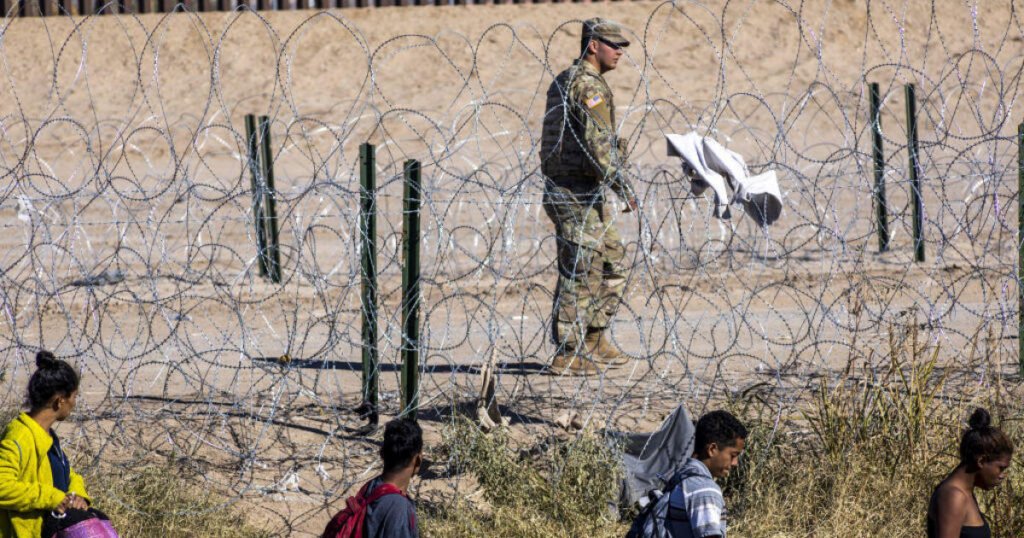The Supreme Court has approved the enforcement of Texas’ SB4 immigration law, which criminalizes unauthorized migration at the state level. This law allows for the jailing and prosecution of migrants suspected of crossing the U.S. southern border without authorization. Despite the Biden administration’s objections and concerns that the law is unconstitutional, the high court declined to block its enforcement while the U.S. Court of Appeals for the 5th Circuit reviews its legality. The law also creates a state felony charge for illegal reentry, further complicating the issue of unauthorized migration.
The Justice Department had requested the suspension of SB4, arguing that it conflicts with federal immigration laws. However, the 5th Circuit initially suspended a federal judge’s ruling that blocked the law, leading to the Supreme Court stepping in to decide on the matter. Justice Amy Coney Barrett, in a concurring opinion with the majority, highlighted that the court should not interfere with the appeals court’s decision. The three liberal justices dissented from the ruling, expressing concerns that the law would disrupt foreign relations and hinder federal enforcement efforts while jeopardizing the protection of individuals fleeing persecution.
SB4 empowers Texas law enforcement officials to stop, jail, and prosecute migrants on illegal entry and reentry charges. It also allows judges to order migrants to return to Mexico as an alternative to prosecution, essentially creating a state deportation system. The Mexican government has condemned the law, stating that it violates the rights of Mexican nationals and undermines the relationship between Mexico and the United States. Despite the objections, Texas Governor Greg Abbott has defended SB4 as necessary to deter illegal immigration due to the lack of federal enforcement along the border.
The White House criticized the Supreme Court’s decision to allow SB4 to go into effect, calling it harmful and unconstitutional. The Department of Homeland Security also expressed concerns that the law would create chaos in immigration enforcement, highlighting that immigration is under the exclusive purview of the federal government. Governor Abbott welcomed the court’s ruling as a positive development, emphasizing the need for stronger measures to address illegal immigration. The dissenting liberal justices warned that SB4 would have far-reaching negative consequences, disrupting foreign relations and impeding federal efforts to protect vulnerable individuals seeking asylum.
While the Supreme Court did not rule on the constitutionality of the law, Justice Sotomayor accused the 5th Circuit of overstepping its authority by allowing SB4 to take effect without considering its potential harm. Justices Barrett and Kagan offered technical opinions on the administrative stay issued by the lower court, emphasizing the need for further legal proceedings to determine the fate of SB4. The ongoing debate surrounding the law reflects the complex and contentious nature of immigration policy in the United States, particularly at the state and federal level. As legal challenges continue, the implications of SB4 on migrant rights and relations with Mexico remain subjects of intense scrutiny and debate.












